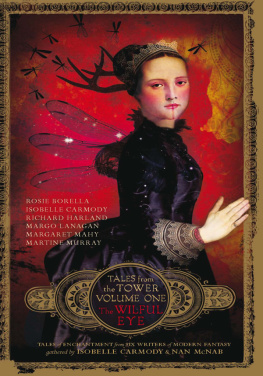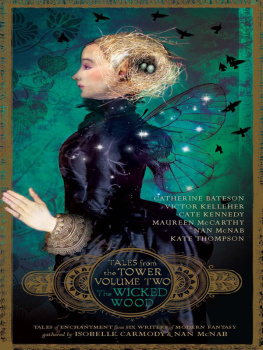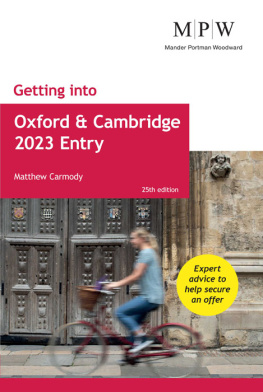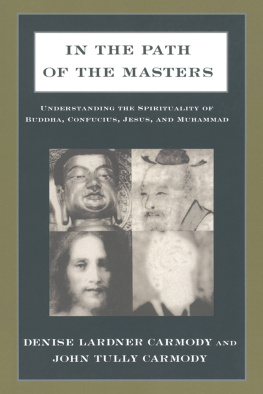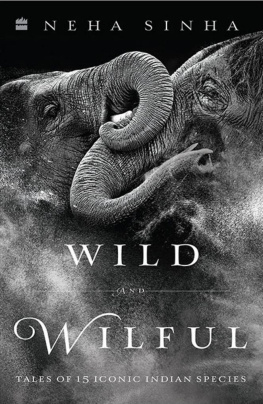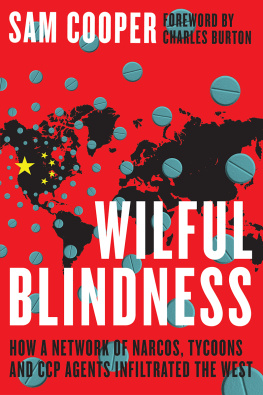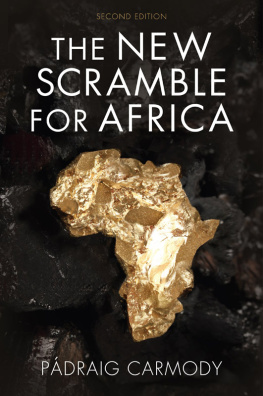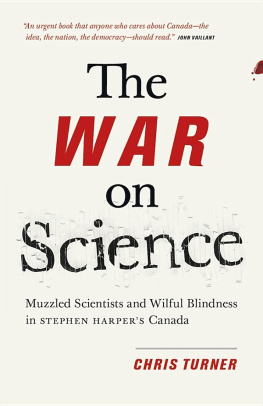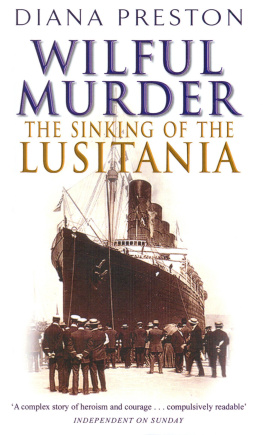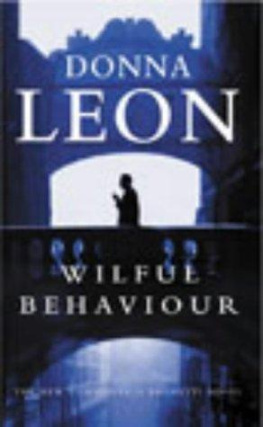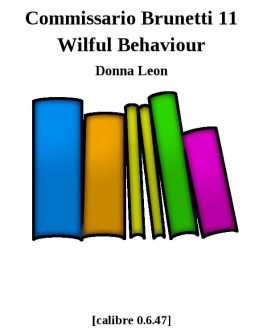Isobelle Carmody - The Wilful Eye
Here you can read online Isobelle Carmody - The Wilful Eye full text of the book (entire story) in english for free. Download pdf and epub, get meaning, cover and reviews about this ebook. year: 2011, publisher: Allen & Unwin, genre: Art. Description of the work, (preface) as well as reviews are available. Best literature library LitArk.com created for fans of good reading and offers a wide selection of genres:
Romance novel
Science fiction
Adventure
Detective
Science
History
Home and family
Prose
Art
Politics
Computer
Non-fiction
Religion
Business
Children
Humor
Choose a favorite category and find really read worthwhile books. Enjoy immersion in the world of imagination, feel the emotions of the characters or learn something new for yourself, make an fascinating discovery.
- Book:The Wilful Eye
- Author:
- Publisher:Allen & Unwin
- Genre:
- Year:2011
- Rating:5 / 5
- Favourites:Add to favourites
- Your mark:
- 100
- 1
- 2
- 3
- 4
- 5
The Wilful Eye: summary, description and annotation
We offer to read an annotation, description, summary or preface (depends on what the author of the book "The Wilful Eye" wrote himself). If you haven't found the necessary information about the book — write in the comments, we will try to find it.
Isobelle Carmody: author's other books
Who wrote The Wilful Eye? Find out the surname, the name of the author of the book and a list of all author's works by series.
The Wilful Eye — read online for free the complete book (whole text) full work
Below is the text of the book, divided by pages. System saving the place of the last page read, allows you to conveniently read the book "The Wilful Eye" online for free, without having to search again every time where you left off. Put a bookmark, and you can go to the page where you finished reading at any time.
Font size:
Interval:
Bookmark:

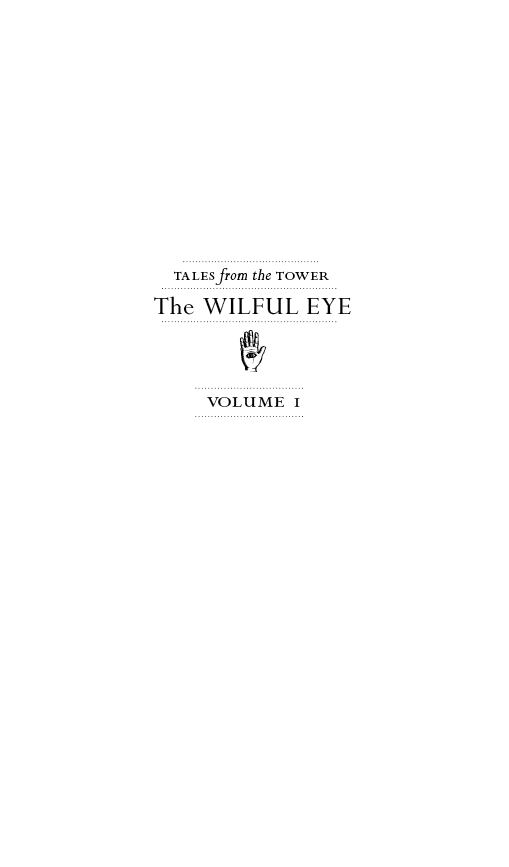

First published in 2011
Copyright in this collection Isobelle Carmody and Nan McNab, 2011
Copyright Eternity, Rosie Borella, 2011
Copyright Moths Tale, Isobelle Carmody, 2011
Copyright Heart of the Beast, Richard Harland, 2011
Copyright Catastrophic Disruption of the Head, Margo Lanagan, 2011
Copyright Wolf Night, Margaret Mahy, 2011
Copyright One Window, Martine Murray, 2011
All rights reserved. No part of this book may be reproduced or transmitted in any form or by any means, electronic or mechanical, including photocopying, recording or by any information storage and retrieval system, without prior permission in writing from the publisher. The Australian Copyright Act 1968 (the Act) allows a maximum of one chapter or ten per cent of this book, whichever is the greater, to be photocopied by any educational institution for its educational purposes provided that the educational institution (or body that administers it) has given a remuneration notice to Copyright Agency Limited (CAL) under the Act.
Allen & Unwin
83 Alexander Street
Crows Nest NSW 2065
Australia
Phone: (61 2) 8425 0100
Fax: (61 2) 9906 2218
Email: info@allenandunwin.com
Web: www.allenandunwin.com
Cataloguing-in-Publication details are available from the National Library of Australia www.librariesaustralia.nla.gov.au
ISBN 978 1 74237 440 6
Cover and text design by Zo Sadokierski
Typeset ans eBook production by Midland Typesetters, Australia
Printed and bound in Australia by Griffin Press
10 9 8 7 6 5 4 3 2 1
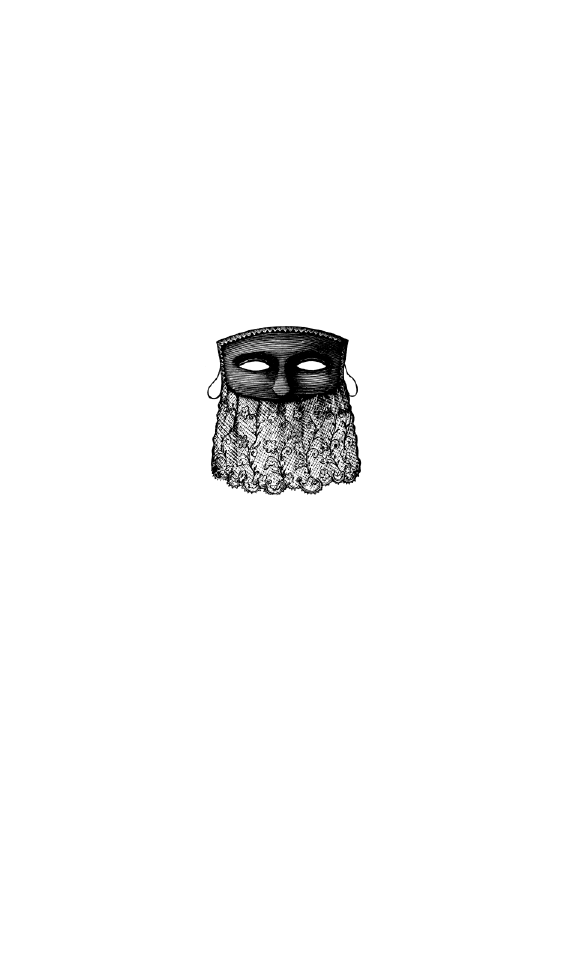
Contents
DISTRIBUTION of the HEAD
by Margo Lanagan
by Isobelle Carmody
by Rosie Borella
by Richard Harland
by Margaret Mahy
by Martine Murray
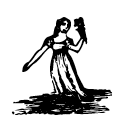
For Ann Jungman
who is one of the most honourable and
truly good-hearted human beings I have ever known.
If life were a fairytale, you would be a good witch.
INTRODUCTION

W hen I was a child, I did not love fairytales. They led you into the dark woods and left you there to fend for yourself with no understanding of where you were or why you had been brought there and no idea of how to find your way back.
They frightened me almost as much as they fascinated me with their vivid strangeness. There were rules in them and they were rigid, but they were not the rules that governed my world, and the results of disobedience were unpredictable. The adults behaved differently from how adults were meant to behave. Fathers and kings were weak and careless or blood-drenched tyrants. Queens and mothers were ruthless and vain and sometimes wicked. Guides were sly and deceptive. Children were often in mortal danger.
The world of fairytales was not how the real world was represented to me by adults, who spoke of reason and fairness. Nor did fairytales offer the comforting magic of such fantasies as Enid Blytons The Magic Faraway Tree . They felt powerful and important, thrilling as well as frightening. I often felt that I was being shown things I was not supposed to see, that there was something in fairytales beyond my ability to understand, something adult and difficult and possibly painful. I both wanted to understand and feared to understand in the same way that I wanted and feared to become an adult.
The many cruel indelible details in fairytales gave me nightmares: the red dancing shoes that grew onto the feet of the disobedient girl who had bought them and which, when severed by a woodcutter, danced bloodily into the sunset; the way Hansel poked a bone out of his cage so the blind witch would think he was not fat enough to eat; the slimy feel of the frog against the lips of the princess who had to kiss him because she had promised to do so; the incriminating bloodstain that appeared on the key Bluebeard gave his young wife, when she disobeyed him.
In fairytales, tasks are tripled, certain phrases are repeated: the wolf chants over and over that he will blow the house down, the troll asks repeatedly who is trit-trotting over his bridge, Otesanek lists all that he has consumed over and over. All of these things generate the anxious feeling of impending and inexorable disaster. Right from the beginning, there is a sense that something dreadful is going to happen.
When I grew up, I came to love fairytales for all the things that had frightened me when I was a child. I understood that a fairytale worked through obscure but vivid archetypes and strange opaque metamorphoses. A fairytale did not try to explain itself. It was not exploring or analysing anything. It did not offer rational or obvious answers or advice. It was like an eruption that you could not help but feel and react to in some visceral way.
A fairytale is short, but it is not a short story. A fairytale does not explore or analyse but a short story can do both. Short stories often do not need to explain or sum up everything or come to a conclusion as longer works often do, perhaps in part because they have the leisure of time and space. Fairytales nevertheless usually have a feeling of completeness, as if everything is finally where it should be. The short story form allows evocation, suggestion, implication. Its potency often lies in what it does not say.
I can vividly remember the breathless thrill I felt at the last profound image of the panther padding backwards and forwards in the cage that had been occupied by Kafkas hunger artist. It is not explained or analysed. It is left to us to make of it what we can and there is no page at the back to tell us if we are right or wrong. This, incidentally, is how fairytales work, though one is always inclined to want to draw a moral from them. The form seems to be shaped for that, which may be why they were handed down to children. It is interesting that the worst retellings of traditional fairytales are those that heavy-handedly take the step of making a moral point.
Long fiction is wonderful and you can lose yourself in it as a reader and as a writer, but short stories dont allow the same kind of immersion. Often the best stories hold you back and make you witness them. This may be one of the reasons some people reject the form. That and the fact that they are harder work to read. A story will not let you get comfortable and settle in. It is like a stool that is so small that you must always be aware of sitting. I love writing short stories because the form will not permit me to forget about it, and because it allows me a freedom to do things that I cannot do in a novel, such as focusing in very closely on a single event or thought. Of course there are novels that do it, such as Peter Handkes chilly, brilliant Afternoon of a Writer , but I would say that was a novel written like a short story. A short story does not need to be completed in the same way a novel must be finished. Even if it is a slice of life story, there is always something open about it.
Font size:
Interval:
Bookmark:
Similar books «The Wilful Eye»
Look at similar books to The Wilful Eye. We have selected literature similar in name and meaning in the hope of providing readers with more options to find new, interesting, not yet read works.
Discussion, reviews of the book The Wilful Eye and just readers' own opinions. Leave your comments, write what you think about the work, its meaning or the main characters. Specify what exactly you liked and what you didn't like, and why you think so.

